Alcoa Foundation's Conservation and Sustainability Fellowship Program
"Enabling Technology for a Sustainable Energy Future Through Interdisciplinary Research and Training"
The University of Michigan was selected as the North American partner for the Alcoa Foundation's Conservation and Sustainability Fellowship Program (ACSFP). The University brings together expertise and leadership from four Colleges/Schools, eleven faculty, and five sustainability research programs to provide a world-class postdoctoral fellowship program. An interdisciplinary framework and workshops integrating environmental, social, and economic perspectives serve as a basis for collaborative research to enable technologies for a sustainable energy future.
Other Alcoa Foundation Program Partners include: Curtin University of Technology in Perth, Australia; London School of Economics and Political Science in London, UK; Tsinghua University in Beijing, China; and University of São Paulo in São Paulo, Brazil.
Past Fellows
Past Fellows
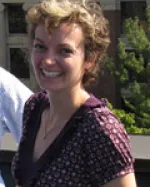
Judith L. Walls
Project Title: Corporate Strategic Responses to Renewable Energy Policy
Dr. Judith Walls holds a PhD in corporate strategy from the Lally School of Management and Technology, Rensselaer Polytechnic Institute, and an MBA in international business from the National University of Singapore. Her doctoral thesis focused on the impact of corporate governance structures and mechanisms on environmental strategy, and measuring environmental strategy and its relationship to firm performance. Dr. Walls has also been involved in a project on energy efficient technology in the lighting industry with Sloan Industry Studies. Dr. Walls’ professional experience includes seven years in investor relations consulting as director of research, consulting and business development in London, Singapore, Hong Kong and Sydney. She conducted investor and market analytics for clients globally in high-technology, airline, banking/insurance and other industries to access investors and conduct initial public offerings. Dr. Walls has also conducted independent consulting on environmental strategy and social marketing, and has volunteered extensively as a business consultant with the Cheetah Conservation Fund.
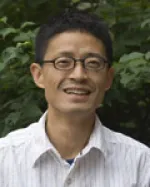
Chunbo Ma
Project Title: Utility Restructuring and Renewable Energy Policy
Dr. Chunbo Ma holds a PhD in ecological economics from Ecological Economics Program at the Department of Economics, Rensselaer Polytechnic Institute (RPI), and a Masters in environmental economics, values and policy (EEVP) from the Department of Science and Technology Studies, RPI. His doctoral thesis focused on the driving forces of China’s changing energy intensity trend and variations in carbon emissions, and the causal relationship between economic growth and energy consumption. Dr. Ma has also been involved in a research project assessing sustainability of the World Bank’s energy portfolio and the second stage UNEP-DDP project at International Rivers Network. Prior to his graduate study at RPI, Dr. Ma earned a B.S. in Finance at Nankai University in P.R. of China and worked for three years at the Agriculture Development Bank of China (ADBC). He now holds a position of Lecturer in the School of Agricultural and Resource Economics within the Faculty of Natural and Agricultural Sciences at the University of Western Australia.
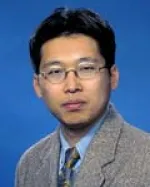
Hyung-Ju Kim
Project Title: Materials in Automotive Design - Modeling Impacts on Vehicle Performance and Greenhouse Gas Emissions
We are also pleased to welcome Dr. Hyung-Ju Kim as the third University of Michigan Alcoa Conservation and Sustainability Fellow. His research will involve him on two projects. The first is a project sponsored by Ford which considers the sustainable asset management and remanufacturing strategies for next generation vehicles. The second is a project sponsored by the National Science Foundation which investigates materials use and greenhouse gas emissions from next generation vehicle design options. Dr. Kim studied at Precision Mechanical Engineering (Bachelor) and Industrial Engineering (Master) in the Pusan National University, Pusan, Korea. He earned a doctorate at the Institute for Machine Tools and Factory Management (IWF) at the Technical University Berlin, Germany. The title of his doctoral dissertation is "Dynamic Process Planning and Generation of Control Sequences for the Flexible Disassembly Systems." After a 2-year appointment as senior research scientist at the Korea Institute of Science and Technology Europe (KIST Europe), Saarbrücken, Germany, he worked as post-doctoral researcher at the IWF, TU Berlin. One of the important contributions in this period is the research work titled "Comprehensive Planning on the Infra-Structure Establishment for Sustainable Manufacturing", which is a joint project between the Korea National Cleaner Production Center, KNCPC and the TU Berlin. His current research interests are modeling of design options for reducing greenhouse gas emissions and remanufacturing technology for next generation vehicle.
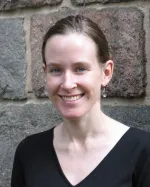
Hilary Grimes-Casey
Project Title: Predicting Life Cycle and Market Consequences of Automotive GHG Policy
Dr. Hilary Grimes-Casey joined our group as the second University of Michigan Alcoa Conservation and Sustainability Fellow in September 2006. Dr. Grimes-Casey's research interests include decision-making tools for consumer product life cycle management and corporate stewardship. She explored the development of life cycle tools for analyzing alternative automotive greenhouse gas polices, and the role of NGOs in shaping corporate sustainability strategy and policy. She holds Masters and doctoral degrees in Civil and Environmental Engineering from Clarkson University, Potsdam NY, where she participated in the National Science Foundation-funded Integrative Graduate Education Research and Training (IGERT) program in Environmental Manufacturing Management. Her doctoral research applied game theoretic analysis to lifecycle management decisions for end of life packaging, developed from a summer research internship with Xerox Corporation in Webster, NY . Prior to her graduate studies, Dr. Grimes-Casey earned a B.S. in Environmental Systems Technology from Cornell University. Her professional experience includes two years as Executive Director for the environmental non-profit Save The River, and one year as a visiting assistant professor in environmental studies at St. Lawrence University, Canton, NY, both of which contributed to her interest in private/public/non-profit partnering in environmental policy. She is now an Energy Program Representative with Science Applications International Corp. in Albany, NY.
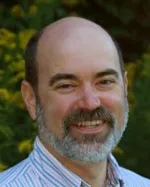
Geoffrey M. Lewis
Project Title: Influencing the Development and Implementation of Wind Energy
Dr. Geoffrey Lewis joined our group as the first University of Michigan Alcoa Conservation and Sustainability Fellow in February 2006. Dr. Lewis' research explored factors influencing the development and implementation of renewable energy technologies. His analysis investigated resource potential, siting issues, policy instruments, and market forces that will shape the future of wind, solar, and biomass energy in the State of Michigan . Dr. Lewis brought a wide array of skills and tools for this interdisciplinary research including GIS modeling, remote sensing, energy analysis, and life cycle assessment. He received an interdepartmental Ph.D. in Landscape Architecture and Architecture from the University of Michigan . During his graduate studies, he was awarded a Michigan Society of Fellows predoctoral associate fellowship. He holds an M.S. in Natural Resources has also completed a graduate certificate in spatial analysis. He also holds an M.Sc. in Architecture, all from the University of Michigan . Prior to his graduate studies at Michigan Dr. Lewis earned a B.S. in Electrical Engineering from Rensselaer Polytechnic Institute and worked for seven years in industry, primarily with imaging infrared night vision systems. He is now Assistant Professor of Environment, Policy, and Sustainable Energy in the Faculty of Environment at the University of Waterloo
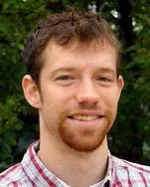
Jarod C. Kelly
Project Title: Optimal Deployment of Technology to Capture Renewable Energy Resources Subject to Regional Demands
Dr. Jarod Kelly earned a bachelor's degree in mechanical engineering from the University of Oklahoma and a master's degree and Ph.D. in mechanical engineering from the University of Michigan. Dr. Kelly's doctoral thesis focused on integrating shape preference information along with engineering design objectives and constraints in the design of consumer products. This work attempted to scientifically examine the classic "form versus function" question. The work also provided foundational research regarding the use of interactive genetic algorithms in preference assessment.